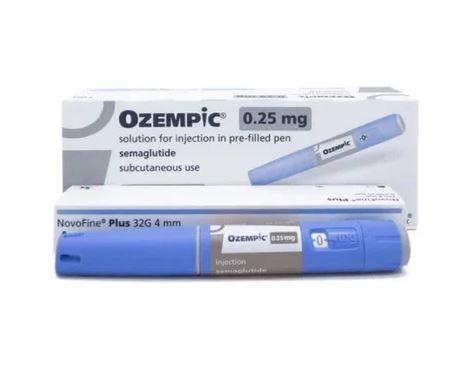How Long Does it Take for Alcohol to Kick In?
Many people drink alcohol, but the time it takes for alcohol to take effect can vary depending on several things. How quickly you feel the effects of alcohol depends on how much you’ve drunk, how heavy you are, and whether or not you’ve eaten.
Alcohol usually takes between 10 and 30 minutes to get into the bloodstream and starts to have an effect. But this can be different for different people and in different situations. If you drink on an empty stomach, you may feel the effects of the alcohol more quickly. On the other hand, drinking alcohol after a meal can slow down how quickly it is absorbed, making its effects last longer.
Also, you should know that the effects of alcohol can keep getting worse for up to an hour after you drink it. Depending on the amount taken and other factors, the effects can last several hours. It’s important to remember that alcohol can affect your judgment and coordination, so it’s important to drink in moderation and never drive or use heavy machinery after drinking.
How Long Does Alcohol Poisoning Take to Kick In?
Someone is said to have alcohol poisoning if they consume a large amount of alcohol in a short amount of time, which results in a potentially lethal accumulation of alcohol in the body. If you suspect someone experiencing alcohol poisoning, you must seek medical attention immediately. The symptoms of alcohol poisoning can be severe and even pose a threat to a person’s life.
How long does alcohol take to kick in? The amount of time that passes before the symptoms of alcohol poisoning become apparent can change depending on several different factors. The rate at which alcohol is absorbed into the bloodstream can be affected by factors such as the amount and type of alcohol consumed and the individual’s weight, gender, and overall health.
After drinking alcohol, it may take thirty minutes to two hours for the symptoms of alcohol poisoning to appear. In general, this window of time can be quite variable. However, it is essential to keep in mind that symptoms can also develop more rapidly in some cases, particularly in situations in which a person has consumed a significant amount of alcohol in a short period of time.
Effects of Alcohol
- Central nervous system depression.
- Slowed reaction time and impaired coordination.
- Impaired judgment and decision-making abilities.
- Memory problems and blackouts.
- Liver damage and other health problems with long-term heavy drinking.
- Increased risk of certain cancers.
- Disruption of sleep patterns.
- Worsening mental health issues like depression and anxiety.
- Increased risk of accidents and injuries.
- Social and relationship problems.
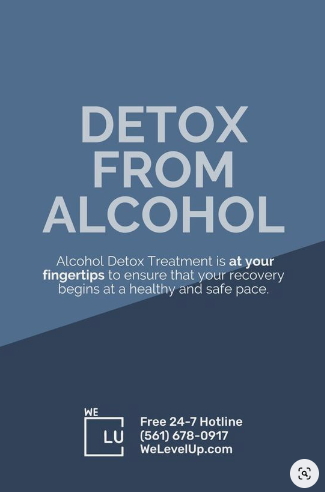
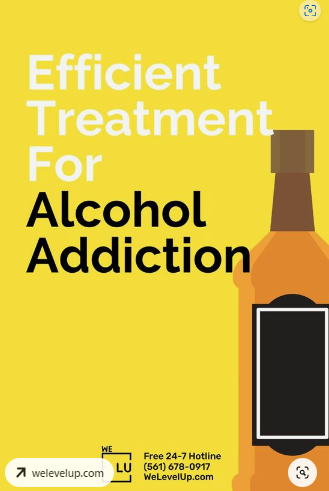
Skip To
Learn More:
- Types of Alcohol – Finding Treatment for Excessive Alcohol Consumption
- How to Sober Up Fast
- When are You Considered an Alcoholic?
- Married to an Alcoholic
- How To Help a Drunk Person?
- Best Alcohol to Drink with UTI?
- Does Drinking Alcohol Decreases Your Immune System?
- Is Alcohol a Drug?
- Is Alcohol a Depressant?
- Is Alcohol a Stimulant?
- Is Alcoholism a Disease?
Get Help. Get Better. Get Your Life Back.
Searching for Accredited Drug & Alcohol Rehab Centers Near You? Or Mental Health Support?
Even if you have failed previously, relapsed, or are in a difficult crisis, we stand ready to support you. Our trusted behavioral health specialists will not give up on you. Call us when you feel ready or want someone to speak to about therapy alternatives to change your life. Even if we cannot assist you, we will lead you wherever you can get support. There is no obligation. Call our hotline today.
FREE Addiction Hotline – Call 24/7Alcoholism Statistics
In 2019, of the 85,688 liver disease deaths among individuals ages 12 and older, 43.1 percent involved alcohol. Among males, 53,486 liver disease deaths occurred, and 45.6 percent involved alcohol. Among females, 32,202 liver disease deaths occurred, and 39.0 percent involved alcohol.
85%
According to the 2019 National Survey on Drug Use and Health (NSDUH), 85.6 percent of people ages 18 and older reported drinking alcohol at some point in their lifetime.
Source: NIAAA
7.3%
According to the 2019 NSDUH, about 7.3 percent of adults ages 18 and older who had alcohol use disorder (AUD) in the past year received any treatment in the past year.
Source: NIAAA
95,000
An estimated 95,000 people (approximately 68,000 men and 27,000 women) die from alcohol-related causes annually.
Source: NIAAA
Alcohol Facts
What is Alcohol?
The chemical name ethanol sometimes refers to alcohol, is a depressant drug that is the active ingredient in drinks such as beer, wine, and distilled spirits (hard liquor).
What is its origin?
The earliest known evidence comes from 7,000 BCE in China, where residue in clay pots revealed that people were making an alcoholic beverage from fermented rice, millet, grapes, and honey.
What are common street names?
Many people have heard the names “booze,” “brew,” and “cold one” to describe alcohol, specifically beer. Some other common street names and nicknames for alcohol include:
- Juice.
- Hard stuff.
- Sauce.
- Hooch.
- Moonshine.
- Vino.
- Draft.
- Suds.
- Liquid bread.
- Oats soda.
What are common scientific names?
Pronunciation/ˈɛθənɒl/ Ethanol
Other Names of Alcohol
- Absolute alcohol.
- Alcohol (USP).
- Ethanol (JAN).
- Ethylic alcohol.
- EtOH.
- Ethyl alcohol.
- Ethyl hydrate.
- Ethyl hydroxide.
- Ethylol.
- Grain alcohol.
- Hydroxyethane.
- Methylcarbinol.
Legal status: US: Unscheduled
Routes of administration Common: by mouth
Uncommon: suppository, inhalation, insufflation, injection
What Type of Drug is Alcohol?
- Analgesic.
- Depressants.
- Sedatives; Anxiolytics.
- Euphoriants.
- GABAA receptor positive modulators.
What is its effect on the body?
Physiological effects of oxycodone include:
- Pain relief, sedation, respiratory depression,
constipation, papillary constriction, and cough
suppression. - Extended or chronic use of oxycodone
containing acetaminophen may cause severe liver
damage
Pharmacokinetic Data
Bioavailability: 80%+.
Protein binding: Weakly or not at all.
Metabolism: Liver (90%):.
• Alcohol dehydrogenase.
• MEOS (CYP2E1)..
Metabolites Acetaldehyde; Acetate; Acetyl-CoA; Carbon dioxide; Water; Ethyl glucuronide; Ethyl sulfate.
Onset of action Peak concentrations:
• Range: 30–90 minutes.
• Mean: 45–60 minutes.
• Fasting: 30 minutes.
Elimination half-life Constant-rate elimination at typical concentrations:
• Range: 10–34 mg/dL/hour.
• Mean (men): 15 mg/dL/hour.
• Mean (women): 18 mg/dL/hour.
At very high concentrations (t1/2): 4.0–4.5 hours
Duration of action 6–16 hours (amount of time that levels are detectable).
Excretion• Major: metabolism (into carbon dioxide and water).
• Minor: urine, breath, sweat (5–10%).
Most Popular Alcohol FAQs
-
Does alcohol take time to kick in?
It takes about 10-30 minutes for alcohol to start affecting the body after consumption. However, some people may feel the effects more quickly, while others may not feel anything until after an hour or more.
-
How long does for alcohol withdrawal to kick in?
Withdrawal from alcohol can begin as early as a few hours after the last drink and last for days or weeks, depending on the individual’s tolerance and addiction level.
The amount and frequency of alcohol consumption, the length of time an individual has been drinking, the individual’s overall health, and other factors can all affect the timing and severity of alcohol withdrawal symptoms.

Factors that Affect Alcohol Absorption
How long for alcohol to kick in? Alcohol absorption can vary from person to person and is affected by several factors. These include:
- Body weight and composition: People with lower and higher body fat absorb alcohol more quickly.
- Gender: Women generally have a lower tolerance for alcohol than men due to differences in body composition and enzyme production.
- Age: As we age, our bodies become less efficient at metabolizing alcohol, which can lead to higher blood alcohol concentrations and longer-lasting effects.
- Food consumption: Eating a meal before drinking can slow down the absorption of alcohol by reducing the amount of alcohol that enters the bloodstream at once.
- Alcohol concentration: The higher the alcohol concentration in a drink, the faster it will be absorbed into the bloodstream.
- Drinking rate: Consuming alcohol quickly can lead to higher blood alcohol concentrations and faster onset of effects.

Get Your Life Back
Find Hope & Recovery. Get Safe Comfortable Detox, Addiction Rehab & Mental Health Dual Diagnosis High-Quality Care at the We Level Up Treatment Centers Network.
Hotline (877) 378-4154How Long Does it Take for Alcohol to Reach the Brain?
Alcohol is a depressant that negatively affects the central nervous system, including the brain. The rate at which alcohol reaches the brain is affected by many variables, such as the drinker’s size, gender, and general health. Alcohol is rapidly absorbed into the bloodstream from the stomach and small intestine after ingestion. The liver then processes it, converting it to the carcinogenic byproduct acetaldehyde. Since the liver has a limited capacity, any alcoholic beverage consumed in excess will remain in the bloodstream.
How long alcohol takes to kick in? After drinking, the effects of alcohol won’t be felt in the brain until about 30 minutes. However, this varies from person to person because of differences in absorption and metabolism. Food, fluid, and medication intake all influence how quickly and how much alcohol is absorbed into the bloodstream and reaches the brain. It’s crucial to remember that drinking can have both short- and long-term effects on the brain and health and that heavy or chronic drinking can have devastating results.
First-class Facilities & Amenities
World-class High-Quality Addiction & Mental Health Rehabilitation Treatment
Rehab Centers TourRenowned Addiction Centers. Serene Private Facilities. Inpatient rehab programs vary.
Addiction Helpline (877) 378-4154Proven recovery success experience, backed by a Team w/ History of:
15+
Years of Unified Experience
100s
5-Star Reviews Across Our Centers
10K
Recovery Success Stories Across Our Network
- Low Patient to Therapist Ratio
- Onsite Medical Detox Center
- Comprehensive Dual-Diagnosis Treatment
- Complimentary Family & Alumni Programs
- Coaching, Recovery & Personal Development Events
Understanding Blood Alcohol Concentration (BAC) Levels
The blood alcohol concentration, also known as BAC, is a measurement that determines how much alcohol is present in the bloodstream of a person. It is typically expressed as a percentage, such as 0.08%, the legal limit for driving in many countries.
How long does it take for alcohol to kick in? This is the most common form of expression. The amount of alcohol consumed, the rate at which it is consumed, the individual’s weight and metabolism, and whether or not they have eaten within the past few hours are all factors that can affect the level of blood alcohol concentration (BAC). It is possible for a person’s judgment, coordination, and ability to concentrate to deteriorate as their blood alcohol content (BAC) rises, which can result in accidents, injuries, and other unfavorable outcomes.
How long does alcohol take to kick in? A high blood alcohol concentration can potentially cause respiratory depression, coma, and even death in severe cases. Anyone who drinks alcohol, especially those who drive or operate heavy machinery, should make it a point to educate themselves on blood alcohol concentration (BAC) levels. Additionally, it can assist individuals in making educated decisions regarding the amount of alcohol they consume and avoid potential risks.
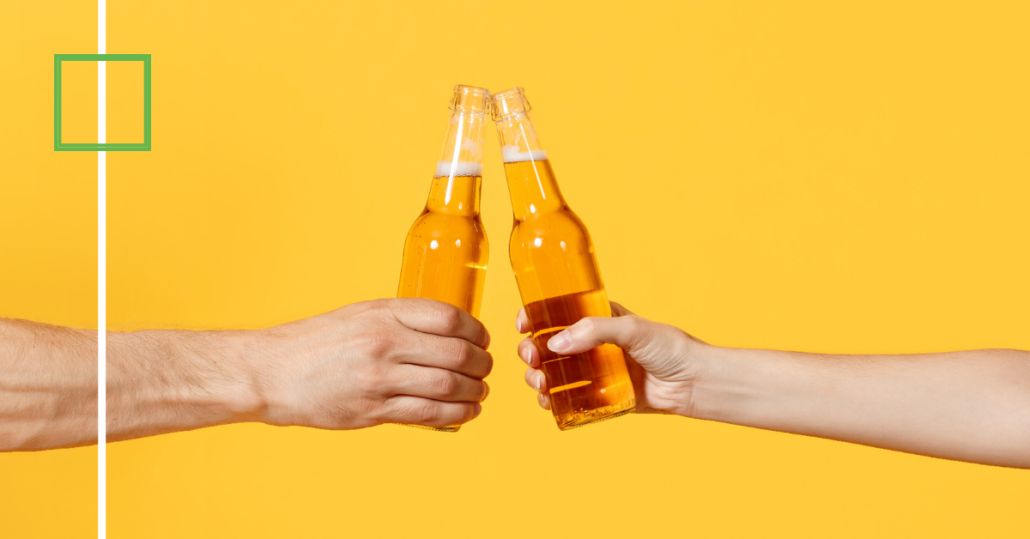
World-class, Accredited, 5-Star Reviewed, Effective Addiction & Mental Health Programs. Complete Behavioral Health Inpatient Rehab, Detox plus Co-occuring Disorders Therapy.
CALL (877) 378-4154End the Addiction Pain. End the Emotional Rollercoaster. Get Your Life Back. Start Drug, Alcohol & Dual Diagnosis Mental Health Treatment Now. Get Free No-obligation Guidance by Substance Abuse Specialists Who Understand Addiction & Mental Health Recovery & Know How to Help.
Tips for Safe Alcohol Consumption and Harm Reduction
It is possible to maintain a healthy lifestyle while drinking alcohol in moderation; however, it is essential to have an awareness of the potential dangers associated with alcohol consumption as well as safe practices for doing so. These suggestions can help reduce the damage that is caused by drinking an excessive amount of alcohol:
- Know your limits and stick to them.
- Consume food before and during drinking to slow down the process of alcohol absorption.
- Alternate between alcoholic drinks and non-alcoholic drinks throughout the night.
- Avoid binge drinking and heavy drinking.
- After drinking, you should not drive or operate any machinery.
- Get professional assistance if you or someone you know is struggling with alcohol addiction.
- Be aware of the potential interactions between alcohol and medications.
- Maintain your water intake and take breaks between alcoholic drinks with water.
- When pregnant or trying to conceive, you should abstain from drinking alcohol.
- To avoid having your drink spiked, be aware of your surroundings and always keep an eye on what you’re drinking.
- You can enjoy alcohol without putting yourself or others in danger if you follow these guidelines whenever you drink.
How long does alcohol take to kick in? By following these tips, you can enjoy alcohol safely and reduce the risk of harm to yourself and others.
Experience Transformative Recovery at the We Level Up Treatment Center.
See our authentic success stories. Get inspired. Get the help you deserve.



Start a New Life
Begin with a free call to an addiction & behavioral health treatment advisor. Learn more about our dual-diagnosis programs. The We Level Up treatment center network delivers various recovery programs at each treatment facility. Call to learn more.
- Personalized Care
- Caring Accountable Staff
- World-class Amenities
- Licensed & Accredited
- Renowned w/ 5-Star Reviews
We’ll Call You
Alcoholism Treatment
First and foremost, if you think a loved one is abusing alcohol, research the substances and their associated addiction to understand better what your loved one needs. Next, you must plan an intervention to provide your loved ones with options to battle the effects of alcohol addiction in a safe and supportive environment. During this intervention, offer compassion and support instead of judgment. Lastly, show your support throughout the entire treatment process.
In addition, prolonged drug use can have severe physical and psychological effects on you, so seeking treatment as soon as possible is essential. Inpatient drug rehab offers intensive care that can help you promptly get through the early stages of alcohol withdrawal.
Alcohol Detox
Medical detox is often considered the first stage of treatment. It will help you navigate the complicated alcohol withdrawal but doesn’t address patterns of thought and behavior contributing to drug use. Various treatment approaches and settings can help provide the ongoing support necessary to maintain long-term sobriety after you complete the alcohol detox.
Cravings are very common during alcohol detox and can be challenging to overcome. This often leads to relapse. Constant medical care provided during inpatient treatment helps prevent relapse. Clinicians can give medication and medical expertise to lessen cravings and withdrawal symptoms.
Inpatient Alcohol Rehab
There isn’t one treatment approach or style that will suit everyone. Treatment should speak to the needs of the individual. Inpatient rehab and addiction treatment aren’t just about drug use. the goal is to help the patient stop using alcohol and other substances, but alcohol rehab should also focus on the whole person’s needs.
Addiction is a complex but treatable disease that affects brain function and behavior. When someone or their family is considering different treatment facilities, they should account for the complexity of addiction and the needs of the individual. The objective of attending an inpatient rehab center for addiction treatment is to stop using the drug and re-learn how to live a productive life without it.
Following a full medical detox, most people benefit from inpatient rehab. Inpatient drug rehab can last anywhere from 28 days to several months. Patients stay overnight in the rehab facility and participate in intensive treatment programs and therapy. Once someone completes rehab, their addiction treatment team will create an aftercare plan, which may include continuing therapy and participation in a 12-step program like Narcotics Anonymous.
Psychotherapy
How long does it take alcohol to kick in? Many rehab programs will also have early morning classes or programs. Group sessions occur during inpatient rehab, as do individual therapy sessions. Family therapy may be part of inpatient rehab when it’s feasible. Alternative forms of therapy may be introduced during inpatient rehab, like a holistic therapy program, yoga for addiction recovery, or an addiction treatment massage therapy.
Several different modalities of psychotherapy have been used in the treatment of mental health disorders along with addiction, including:
- Cognitive Behavioral Therapy (CBT) – is an effective treatment that involves changing both the patterns of negative thoughts and the behavioral routines which are affecting the daily life of the depressed person for various forms of depression.
- Dialectical Behavioral Therapy – is a comprehensive mental health and substance abuse treatment program whose ultimate goal is to aid patients in their efforts to build a life worth living. The main goal of DBT is to help a person develop what is referred to as a “clear mind.”
- Solution-focused therapy is an approach interested in solutions that can be quickly implemented with a simple first step leading to further positive consequences.
Dual Diagnosis Treatment
Drug abuse and mental health disorders often co-occur. Traumatic experiences can often result in mental health disorders and substance abuse. Dual-diagnosis rehabilitation treats both of these issues together. The best approach for the treatment of dual diagnosis is an integrated system. This strategy treats both the substance abuse problem and the mental disorder simultaneously. Regardless of which diagnosis (mental health or substance abuse problem) came first, long-term recovery will depend mainly on the treatment for both diseases done by the same team or provider.
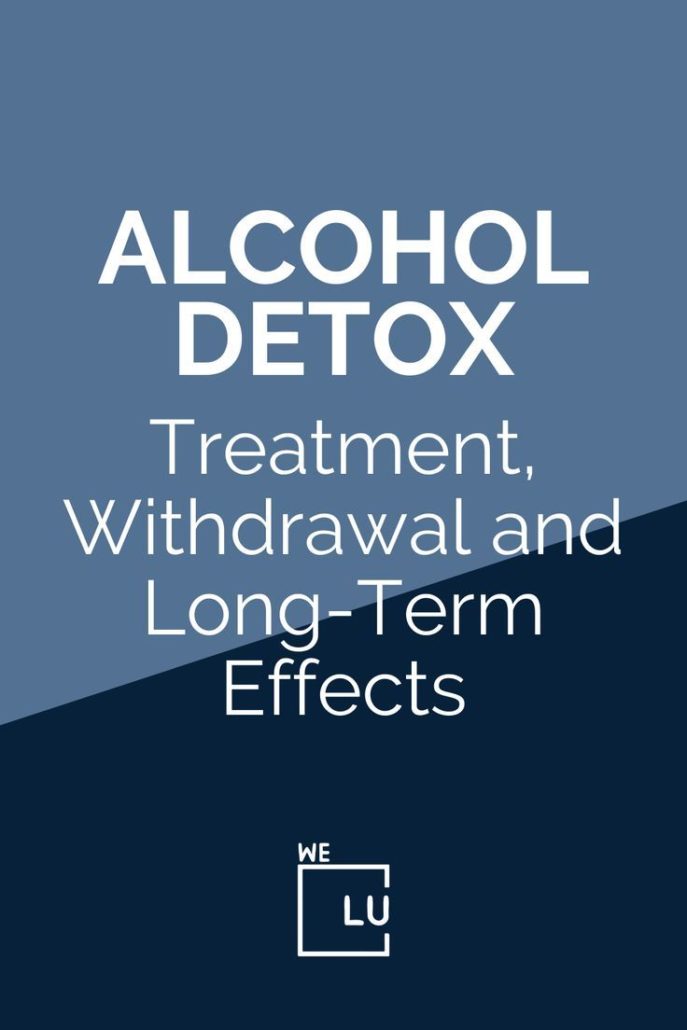
Medication Assisted Treatments (MAT)
Medication-Assisted Treatments (MAT) for substance use and mental health disorders are commonly used in conjunction. This includes the use of medications and other medical procedures. During your rehab, the staff from your treatment facility will help you identify what caused your addiction and teach you skills that will help you change your behavior patterns and challenge the negative thoughts that led to your addiction. Sometimes, the pressures and problems in your life make you rely on substances to help you forget about them momentarily.
Please, do not try to detox on your own. The detox process can be painful and difficult without medical assistance. However, getting through the detox process is crucial for continued treatment. We Level Up provide proper care with round-the-clock medical staff to assist your recovery through our opioid addiction treatment program medically. So, reclaim your life, and call us to speak with one of our treatment specialists. Our counselors know what you are going through and will answer any of your questions.
Alcohol Rehab Near Me
Alcohol addiction is a condition that can cause major health problems, such as an overdose. We Level Up NJ rehab treatment & detox center can provide you, or someone you love, the tools to recover from this with professional and safe treatment. Feel free to call us to speak with one of our counselors. We can inform you about this condition and clarify issues like alcohol withdrawal symptoms. Our specialists know what you are going through. Please know that each call is private and confidential.
What Does Alcohol Do To Your Body? | How Long Does it Take for Alcohol to Kick In? Video
Do you know what a Month Without Alcohol Does to Your Body? Quitting drinking can provide multiple benefits to our bodies. It can help us overcome difficult circumstances we may find ourselves.
Search We Level Up NJ “How Long Does it Take for Alcohol to Kick In?” Topicss & Resources
Sources
[1] The Risks Associated With Alcohol Use and Alcoholism – PMC (nih.gov) – Rehm J. The risks associated with alcohol use and alcoholism. Alcohol Res Health. 2011;34(2):135-43. PMID: 22330211; PMCID: PMC3307043. / Tags: How Long Does it Take for Alcohol to Kick In? how long does alcohol take to kick in?
[2] Information about Alcohol – NIH Curriculum Supplement Series – NCBI Bookshelf – National Institutes of Health (US); Biological Sciences Curriculum Study. NIH Curriculum Supplement Series [Internet]. Bethesda (MD): National Institutes of Health (US); 2007. Information about Alcohol. Available from: https://www.ncbi.nlm.nih.gov/books/NBK20360/Tags: How Long Does it Take for Alcohol to Kick In? how long does alcohol take to kick in?
[3] Alcohol Use Disorder – StatPearls – NCBI Bookshelf (nih.gov) – Nehring SM, Freeman AM. Alcohol Use Disorder. [Updated 2022 Jul 31]. In: StatPearls [Internet]. Treasure Island (FL): StatPearls Publishing; 2022 Jan-. Available from: https://www.ncbi.nlm.nih.gov/books/NBK436003/Tags: How Long Does it Take for Alcohol to Kick In? how long does alcohol take to kick in?
[4] Alcohol | National Institute on Drug Abuse (NIDA) (nih.gov) – https://nida.nih.gov/research-topics/alcohol/Tags: How Long Does it Take for Alcohol to Kick In? how long does alcohol take to kick in?
[5] Alcohol (who.int) – https://www.who.int/news-room/fact-sheets/detail/alcohol/ Tags: How Long Does it Take for Alcohol to Kick In? how long does alcohol take to kick in?
[6] Top Effective Alcoholism Treatment Center Recovery Programs (welevelup.com)/ Tags: How Long Does it Take for Alcohol to Kick In? how long does alcohol take to kick in? how long does alcohol take to kick in?
[7] National Drug & Alcohol IQ Challenge | National Institute on Drug Abuse (NIDA) (nih.gov) – https://nida.nih.gov/research-topics/parents-educators/national-drug-alcohol-facts-weekhttps://nida.nih.gov/publications/national-drug-alcohol-iq-challenge / Tags: How Long Does it Take for Alcohol to Kick In? how long does alcohol take to kick in?
[8] National Drug and Alcohol Facts Week® (NDAFW) | National Institute on Drug Abuse (NIDA) (nih.gov) – https://nida.nih.gov/research-topics/parents-educators/national-drug-alcohol-facts-week/ Tags: How Long Does it Take for Alcohol to Kick In? how long does alcohol take to kick in?
[9] Drug and Alcohol Use – StatPearls – NCBI Bookshelf (nih.gov) – Alozai Uu, Sharma S. Drug and Alcohol Use. [Updated 2022 Jun 21]. In: StatPearls [Internet]. Treasure Island (FL): StatPearls Publishing; 2022 Jan-. Available from: https://www.ncbi.nlm.nih.gov/books/NBK513263/Tags: How Long Does it Take for Alcohol to Kick In? how long does alcohol take to kick in?
[10] Screening for alcohol and drug use disorders among adults in primary care: a review – PMC (nih.gov) – https://www.ncbi.nlm.nih.gov/pmc/articles/PMC3339489/Tags:How Long Does it Take for Alcohol to Kick In? how long does alcohol take to kick in?





